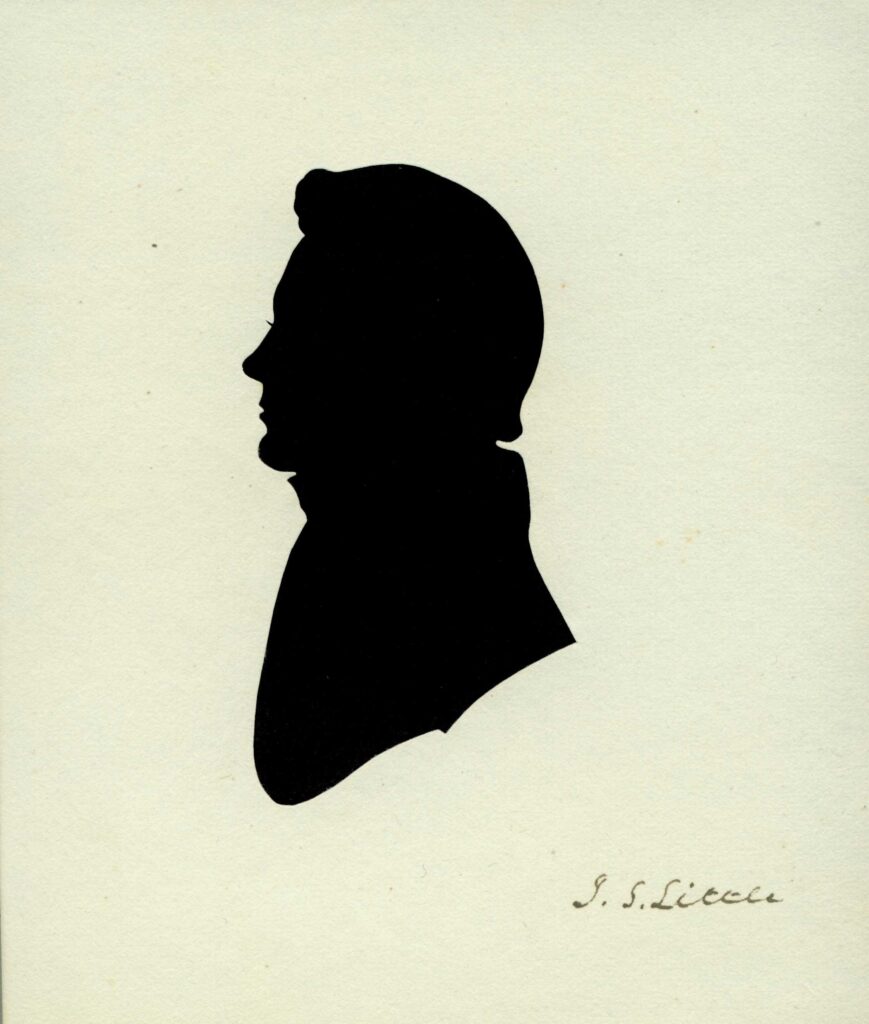
The Well-Connected Valedictorian
Josiah Stover Little was born at Minot, Maine, in 1801. He came from an exceptionally wealthy family. His grandfather, the Colonel Josiah Little, owned land from Brunswick to Rumford. Josiah’s father, Michael Little, helped with the colonel’s properties. He was known for evicting squatters from the land with “vast energy, perseverance, and… unabated vigor.” Josiah had two older brothers, Michael and Edward, who went on to attend Dartmouth. Josiah mother, Sally Stover, died giving birth to him and the young Josiah was sent to live with his colonel grandfather in Newbury, Massachusetts. Because of his family’s wealth, Little had an immensely privileged upbringing. Initially, his family wanted to send their scion straight into the world of business, but Little had an accident that convinced them to first give him an education. He went to Phillips Exeter Academy, which was considered one of the best schools in the nation. His classmates there included Alfred Mason, William Hale, and Jonathan Cilley.
When Josiah was twenty years old his family sent him to Bowdoin to earn his college degree. His first year he boarded at Mrs. Greenleaf’s with Patrick Henry Greenleaf. He stayed at the same home the next year, this time living with George Washington Pierce and David Shepley. He briefly moved into Maine Hall his junior year, before returning to the Greenleaf house as a senior. He was a member of the Peucinian Society. Little’s time at Phillips Exeter prepared him well for Bowdoin. Later his roommate Shepley remembered how “it was his habit to suffer the hour for no exercise of the class to find him without the most careful preparation.” Even with his intense work ethic, Little was occasionally known to skip a class or neglect his homework. But small foibles aside, the scholar had a pristine reputation at Bowdoin. His classmates believed he had a bright future in politics. His professors awarded him dissertations at two separate class exhibitions. And at commencement, Little was named Bowdoin’s valedictorian and gave an address on “The influence of Government on Literature.”
After his exceptional performance at Bowdoin, Josiah decided to pursue a legal career. He studied law at the offices of Fessenden & DuBois in Portland until he passed the bar exam in 1828. Then he practiced for four years on his own. But, Little soon found the work of law to be drudgery. Luckily for him, he had a vast safety net of wealth that enabled him to do whatever he wished. In 1830, his grandfather passed away and left Little his vast estate. Equipped with this fortune, Little decided to make his career in business. Chiefly, he is remembered as one of the founders of the Atlantic & St. Lawrence railroad. In 1844, he was appointed by a Portland judge to negotiate a railroad agreement between Maine and Montreal. Then he had the idea to lease the railroad and its trains for private trips, a decision which brought great deal of revenue to the city. He was also connected to the Berlin Mills company. Little’s business achievements would be his greatest legacy.
However, Little did have a life beyond business. Throughout his life he maintained an active interest in politics. Portland elected him as a state representative four times and he twice served as the Speaker of the House. Little was also a candidate for U.S. Congress multiple times, but could never get elected. This was because he was a devoted Whig in a thoroughly Democratic state. However, some of Little’s biographers claimed his losses were as much a result of a lack of motivation as him being a political minority. Since Little always had a cushion of immense wealth, he had little incentive to fully throw himself into a political career.
Outside of his public life, Little considered himself a family man. In 1833, he married Abba Isabella Chamberlain, the daughter of a reputable Bostonian. In 1834, the pair had their only child, a daughter also named Abba Isabella. She went on to marry a man named Charles B. Merrill and have eight children. Little was also a committed Episcopalian. He attended St. Luke’s Church in Portland, which he helped build. This is just one way in which Little was seen as one of Portland’s leading citizens. His office was always open for visitors and he had a way of making people feel welcome, even when he was busy. In 1860, the Prince of Wales came to visit Maine and stayed at Little’s home. Here he made a controversial and somewhat ironic speech about how Europe would soon stop fighting wars. Little passed away in 1862 at his Portland house. He died of a sudden illness which destroyed his health in just four days. Those who knew Little remembered him as an eloquent speaker and a force of inspiration.